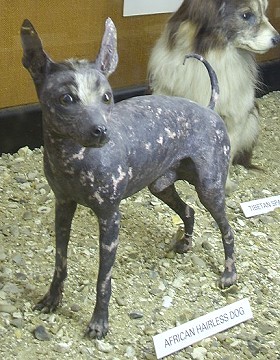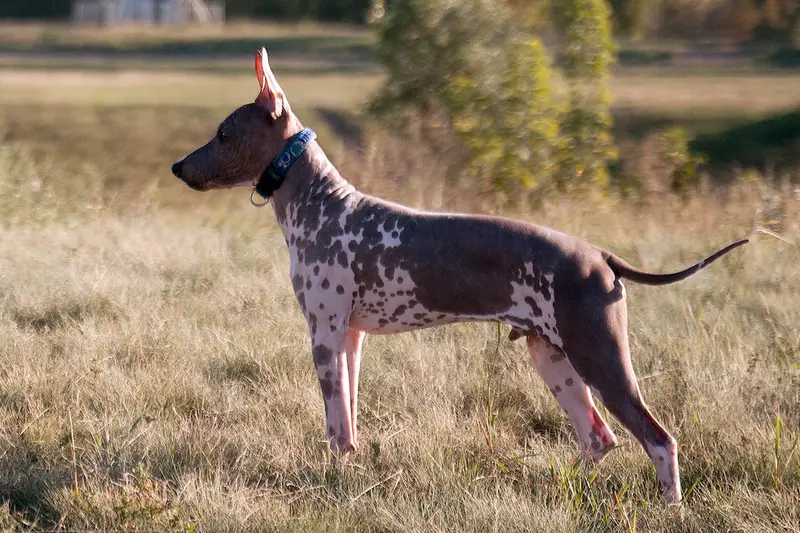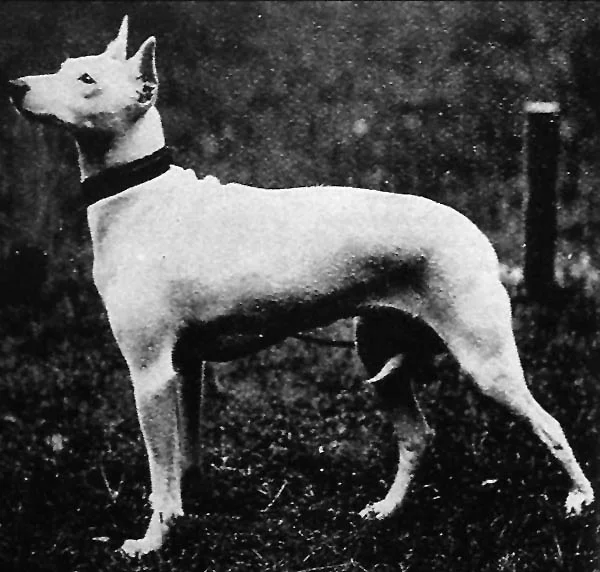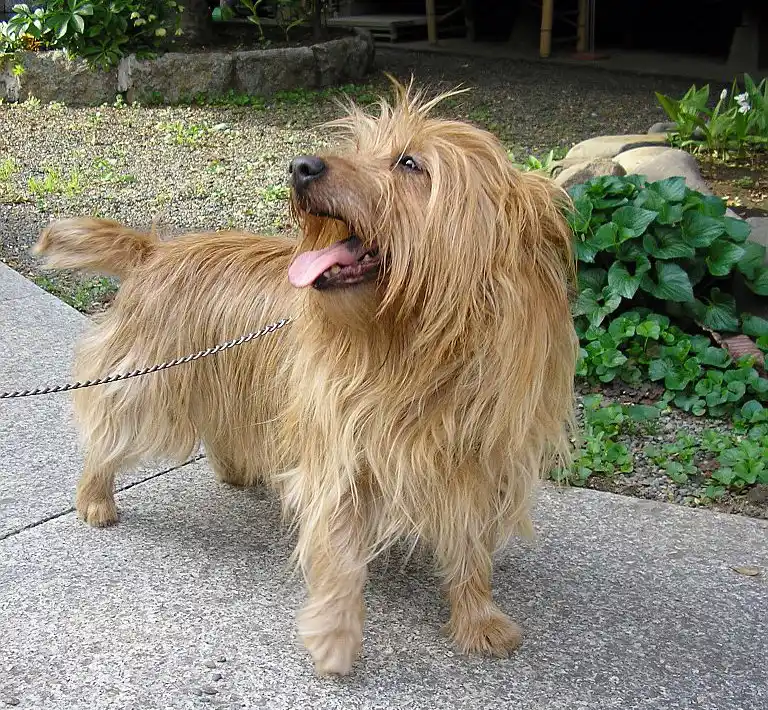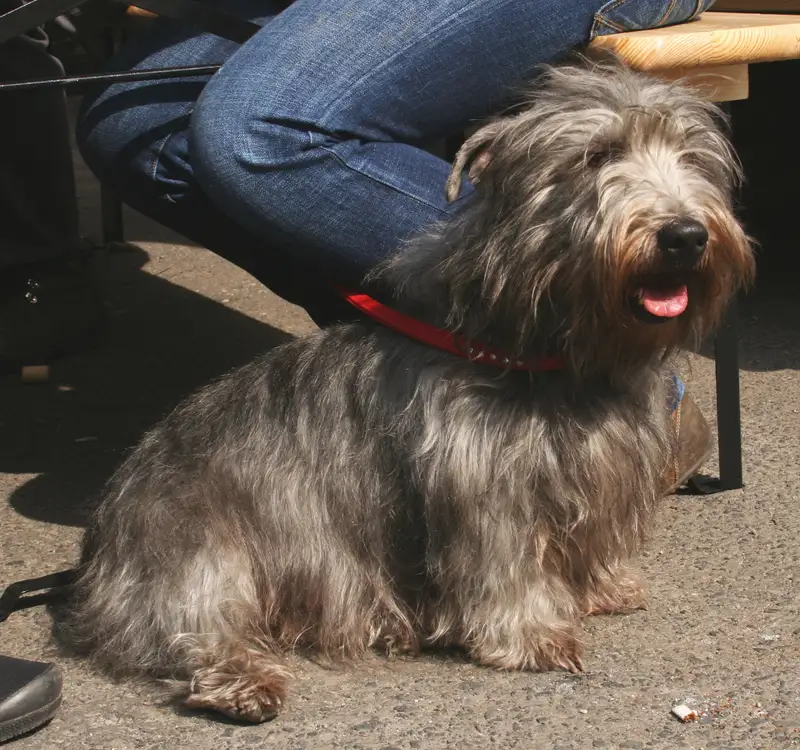Soft-Coated Wheaten Terrier
The Soft-Coated Wheaten Terrier is a medium-sized, affectionate breed known for its soft, silky coat and playful demeanor. Originally bred as a versatile farm dog in Ireland, they excel in various roles, including companionship and dog sports. With a friendly temperament and moderate exercise needs, Wheatens make excellent family pets.
⚡At a glance
🏆Best traits
Key Facts
- Height
- 43-48 cm
- Weight
- 14-18 kg
- Life Span
- 12-14 years
- Group
- Terrier
- Origin
- Ireland
- Shedding
- Very Low
- Exercise
- 60 min/day
- Best For
- Apartments, Families
Overview
🐕Breed Overview
✨Key Traits
💡What Makes Soft-Coated Wheaten Terrier Special
One of the standout traits of the Soft-Coated Wheaten Terrier is its unique coat, which is soft, silky, and wavy, setting it apart from other terrier breeds. This breed is also known for its playful and affectionate demeanor, often forming strong bonds with family members.
Wheatens are adaptable and can thrive in various living situations, whether in a city apartment or a rural home. Their intelligence and eagerness to learn make them suitable for various dog sports, showcasing their versatility.
Additionally, their gentle temperament allows them to coexist peacefully with children and other pets, making them an ideal family companion.
The Soft-Coated Wheaten Terrier is a charming and versatile breed that has captured the hearts of dog lovers around the world. Originating from Ireland, this medium-sized terrier is known for its soft, silky coat and affectionate personality. Historically bred as an all-purpose farm dog, the Wheaten has proven to be an excellent companion, excelling in various roles, from herding livestock to participating in dog sports like agility and obedience.
With a height range of 17 to 19 inches and a weight of 30 to 40 pounds, Wheatens are well-proportioned and sturdy, making them suitable for both urban and rural living. Their temperament is characterized by a playful and gentle nature, making them great family pets. They are known for their affectionate demeanor, often forming strong bonds with their owners and being particularly good with children.
While they can be a bit boisterous, their friendly disposition allows them to get along well with other dogs and pets when properly socialized. Training a Soft-Coated Wheaten Terrier requires consistency and patience, as they can be independent thinkers. However, with positive reinforcement and engaging activities, they can learn a variety of commands and tricks.
Wheatens require regular grooming to maintain their beautiful coat, which should be brushed every two days to prevent matting. Bathing and trimming should be done every other month to keep their coat looking its best. In terms of exercise, they need at least 60 minutes of daily activity, which can include walks, playtime, and participation in dog sports.
Overall, the Soft-Coated Wheaten Terrier is a delightful breed that brings joy and companionship to families, making them a popular choice for dog lovers seeking a loyal and engaging pet.
🎉Fun Facts
Their coat color changes from a darker hue in puppyhood to a lighter wheaten shade as they mature.
They are one of the few terrier breeds that are less aggressive and more gentle with children.
Wheatens are known for their 'Wheaten Greeting,' where they jump up to greet people enthusiastically.
Breed Characteristics
Family & Friends
Good Behavior
Get Up & Go
Household Harmony
Temperament & Personality
✨Key Traits
🐕Core Temperament
The Soft-Coated Wheaten Terrier is characterized by its friendly and gentle temperament. They are affectionate and enjoy being around people, often forming strong bonds with their families.
Wheatens are playful and energetic, making them great companions for children and active households. While they can be a bit boisterous, they are generally good-natured and less aggressive than many other terrier breeds.
Their adaptability allows them to thrive in various living situations, and they typically get along well with other dogs and pets when properly socialized. Training should be approached with patience and positive reinforcement, as they can be independent thinkers.
💫Personality Profile
The Soft-Coated Wheaten Terrier is known for its cheerful and affectionate personality. They are playful and energetic, often displaying a puppy-like exuberance well into adulthood.
Wheatens are generally friendly and sociable, getting along well with children and other pets when properly socialized. Their gentle nature makes them excellent companions, and they thrive on human interaction.
While they can be a bit independent, they are also eager to please, making training a rewarding experience. However, they may exhibit stubbornness at times, requiring consistent and positive reinforcement during training sessions.
🔊Vocal Tendencies
The Soft-Coated Wheaten Terrier is generally a quiet breed, barking primarily to alert their owners of potential intruders or unusual occurrences. They are not known for excessive barking, making them suitable for apartment living.
However, they may bark when excited or during playtime. Their vocalizations are typically friendly and not aggressive, reflecting their gentle nature.
Owners should be mindful of their barking tendencies and provide training to minimize unnecessary vocalizations.
Affection & Social Traits
Big-hearted and highly social — here’s how it shows up day to day.
Energy & Activity
Moderate, steady energy — great for matching your routine.
Communication Style
Generally quiet — a quick read on noise at home.
Care Requirements
🏃♂️Exercise Requirements
Daily Exercise
The Soft-Coated Wheaten Terrier requires a moderate to high level of daily exercise to maintain its physical and mental well-being. Ideally, this breed should engage in at least 60 minutes of exercise each day, which can be broken down into multiple sessions. Activities such as brisk walks, playtime in a secure yard, and interactive games like fetch or tug-of-war are excellent choices.
They also enjoy agility training and other dog sports that challenge their agility and intelligence. Puppies may require shorter, more frequent play sessions to accommodate their developing bodies, while senior dogs may benefit from gentler activities to avoid strain. Regular exercise helps prevent obesity, promotes cardiovascular health, and reduces behavioral issues stemming from pent-up energy.
Insufficient exercise can lead to destructive behaviors, excessive barking, and anxiety, making it crucial for owners to establish a consistent exercise routine.
Preferred Activities
🏠Living & Adaptability
Space Requirements
The Soft-Coated Wheaten Terrier is adaptable to various living environments but thrives best in homes with a secure, fenced yard where it can play and explore. While they can live comfortably in apartments, owners must ensure they provide ample daily exercise and mental stimulation to prevent boredom.
The breed's medium size allows it to fit well in smaller spaces, but they should not be left alone for long periods. A lack of space can lead to anxiety and destructive behaviors, so it's essential to create a stimulating environment with toys and activities to keep them engaged.
Climate Preference
🍲Feeding Guide
Schedule
Food Types
Portion Size
Special Nutritional Needs
Soft-Coated Wheaten Terriers may have specific dietary needs, particularly related to their susceptibility to protein-losing diseases. A high-quality diet rich in protein is essential for their overall health.
Owners should consult with their veterinarian to determine the best dietary plan, especially if their dog shows signs of food sensitivities or allergies. Regular monitoring of their weight and adjusting portions accordingly is crucial to prevent obesity.
✨Grooming Requirements
Grooming Overview
The Soft-Coated Wheaten Terrier has a beautiful, soft, and silky coat that requires regular grooming to prevent matting and maintain its appearance. Owners should brush or comb their Wheaten's coat every two days to remove loose hair and debris.
Bathing should be done every other month, and trimming is necessary to keep the coat tidy and preserve the breed's characteristic silhouette. When grooming, it's important to use the right tools, such as a slicker brush and a comb, to effectively manage the coat.
Regular grooming not only keeps the dog looking its best but also provides an opportunity to check for any skin issues or parasites.
Care Schedule
Brush or comb every two days; bathe and trim every other month.
Health Profile
⚕️Health Care
Regular health care is vital for maintaining the lifespan of Soft-Coated Wheaten Terriers. Routine veterinary check-ups, vaccinations, and preventive treatments are essential for early detection of health issues.
Maintaining a healthy diet, providing regular exercise, and monitoring for any changes in behavior or health can help ensure a long and healthy life for this breed. Owners should also be proactive in addressing any health concerns and follow their veterinarian's recommendations for care.
Health Issues Overview
⏳Average Lifespan
Genetic Factors
Genetics play a significant role in the lifespan of Soft-Coated Wheaten Terriers. Certain hereditary health issues, such as protein-losing diseases, can impact their longevity.
Responsible breeding practices that prioritize genetic diversity and health testing can help reduce the risk of inherited conditions. Potential owners should seek reputable breeders who conduct health screenings and provide transparency about the breed's genetic health history.
Living Conditions
The lifespan of a Soft-Coated Wheaten Terrier can be influenced by various environmental factors, including housing conditions, climate, and social interactions. Providing a stable and loving home environment, along with regular exercise and mental stimulation, can significantly enhance their quality of life and longevity.
Exposure to extreme temperatures, whether hot or cold, should be managed carefully, as Wheatens are more tolerant of cooler climates. Ensuring they have regular veterinary care and a balanced diet also contributes to their overall health and lifespan.
🏥Common Health Issues
Protein-Losing Nephropathy (PLN)
Warning Signs
🔬Diagnosis
Diagnosed through blood and urine tests to assess protein levels.
💊Treatment
Dietary management and medications as prescribed by a veterinarian.
📝Management Tips
Early detection is crucial; dietary changes and medications may help manage the condition.
Protein-Losing Enteropathy (PLE)
Warning Signs
🔬Diagnosis
Diagnosed through blood tests and fecal examinations.
💊Treatment
Dietary management and medications as prescribed by a veterinarian.
📝Management Tips
Similar to PLN, dietary adjustments and medications can help manage symptoms.
Renal Dysplasia
Warning Signs
🔬Diagnosis
Diagnosed through ultrasound and kidney function tests.
💊Treatment
Supportive care and dietary management.
📝Management Tips
Regular veterinary check-ups and monitoring kidney function are essential.
🛡️Preventive Care
🔬Blood and Urine Protein Screens
This test assesses kidney function and protein levels in the urine, helping to identify PLN and PLE.
📅 Annually, or as recommended by a veterinarian.
🔬Eye Examination
This test evaluates the dog's eyes for hereditary conditions that may affect vision.
📅 Every 1-2 years, especially in breeding dogs.
🔬Hip Evaluation
This test evaluates hip joint conformation and can help identify hip dysplasia.
📅 At 2 years of age, or as recommended by a veterinarian.
Training
🧠Intelligence & Trainability
💪Work Drive
The Soft-Coated Wheaten Terrier has a moderate work drive, stemming from its history as an all-purpose farm dog. They enjoy having tasks to complete, whether it's participating in dog sports, engaging in obedience training, or simply playing games with their owners.
Providing mental stimulation through interactive toys and training exercises is essential for their well-being. Without sufficient engagement, they may resort to undesirable behaviors, such as digging or excessive barking.
Owners should aim to incorporate a variety of activities into their dog's routine to keep them mentally and physically stimulated.
⚠️Training Considerations
Soft-Coated Wheaten Terriers can exhibit some behavioral challenges, particularly if not properly socialized or trained. Common issues include jumping up on people, digging, and occasional stubbornness.
To address these challenges, owners should focus on consistent training methods that emphasize positive reinforcement. Early socialization with other dogs and people is crucial to help them develop good manners and reduce any tendencies toward boisterous behavior.
Providing mental stimulation through puzzle toys and interactive games can also help mitigate boredom-related behaviors. Owners should be patient and persistent, as Wheatens can be independent thinkers, requiring a firm yet gentle approach to training.
📝Training Tips
Training a Soft-Coated Wheaten Terrier requires consistency, patience, and positive reinforcement. Start with basic obedience commands such as sit, stay, and come, using treats and praise to encourage good behavior.
Socialization is essential, so expose your Wheaten to various environments, people, and other animals from a young age. Keep training sessions short and engaging to maintain their interest, and incorporate play into the learning process.
Be mindful of their independent nature; while they are intelligent and eager to please, they may also test boundaries. Establishing a routine and setting clear expectations will help your Wheaten thrive in training.
History & Heritage
📜Origin Story
The Soft-Coated Wheaten Terrier originated in Ireland as a versatile farm dog, developed by tenant farmers who needed a reliable companion for herding livestock, guarding property, and hunting vermin. The breed's name reflects its distinctive soft, silky coat, which is a hallmark of its appearance.
Despite its long history, the Wheaten Terrier was not recognized as a distinct breed until the 20th century, with its first official recognition occurring in Ireland in 1937. The breed's introduction to the United States in 1946 marked the beginning of its journey to becoming a cherished family pet, known for its affectionate nature and playful spirit.
The Wheaten's adaptability and gentle temperament have made it a favorite among families, and its participation in various dog sports showcases its intelligence and versatility.
⏳Development History
The Soft-Coated Wheaten Terrier is one of the three large terrier breeds native to Ireland, alongside the Kerry Blue Terrier and the Irish Terrier. Its history dates back several hundred years, with early records indicating its use as an all-purpose farm dog.
The breed was officially recognized by the Irish Kennel Club in 1937, and it made its debut at the Irish Kennel Club Championship Show on St. Patrick's Day in 1938.
The breed gained recognition in the United Kingdom in 1943 and was introduced to the United States in 1946, where it slowly gained popularity. The American Kennel Club (AKC) recognized the breed in 1973, marking its establishment as a distinct breed in the dog community.
🛡️Purpose & Historical Role
Originally bred as an all-purpose farm dog, the Soft-Coated Wheaten Terrier served multiple roles, including herding livestock, guarding homes, and hunting vermin. Its versatility made it an invaluable asset to Irish farmers, who relied on the breed for various tasks.
Over time, the Wheaten Terrier has evolved into a beloved companion dog, known for its affectionate nature and playful demeanor. Today, the breed participates in various dog sports, including obedience, agility, and tracking, showcasing its intelligence and adaptability.
🏺Cultural Significance
The Soft-Coated Wheaten Terrier holds a special place in Irish culture, often referred to as the 'poor man's wolfhound' due to its versatility as a farm dog. Historically, these terriers were bred by tenant farmers in Ireland for various tasks, including herding, guarding, and vermin control.
Their gentle and affectionate nature has made them popular companions, and they have been featured in various cultural references, showcasing their endearing personality. The breed's recognition in dog shows and competitions has further solidified its status as a beloved family pet, with many owners appreciating their playful demeanor and loyalty.
Conservation Status
The breed exists today and isn’t classified as extinct.
Often found in multiple regions; easier to encounter.
This breed is well-established with healthy population numbers.
?Frequently Asked Questions
Is the Soft-Coated Wheaten Terrier good for apartment living?
Yes, the Soft-Coated Wheaten Terrier generally does well in apartments. They adapt comfortably to smaller spaces and can thrive with regular walks and indoor play. Their temperament and energy level make them a good fit for apartment living, though they still need daily exercise.
How much does a Soft-Coated Wheaten Terrier shed?
The Soft-Coated Wheaten Terrier is a very low-shedding breed, making them an excellent choice for people who prefer minimal pet hair around the home. Regular grooming is still recommended to keep their coat healthy, but you won't find much fur on your furniture.
Are Soft-Coated Wheaten Terriers easy to train?
The Soft-Coated Wheaten Terrier can be moderate when it comes to training. They can learn commands and routines with consistent effort, though they may sometimes show a stubborn streak. Patience, positive reinforcement, and regular practice sessions will yield the best results.
How long do Soft-Coated Wheaten Terriers live?
The average lifespan of a Soft-Coated Wheaten Terrier is 12-14 years. Lifespan can be influenced by genetics, diet, exercise, and overall health care. Regular veterinary check-ups and a healthy lifestyle can help your Soft-Coated Wheaten Terrier live a long and happy life.
Is the Soft-Coated Wheaten Terrier good with kids?
Absolutely! The Soft-Coated Wheaten Terrier is exceptionally good with children and makes a wonderful family companion. They are patient, gentle, and often form strong bonds with the younger members of the family. Their tolerant nature and playful spirit make them a top choice for households with kids.
How much exercise does a Soft-Coated Wheaten Terrier need?
The Soft-Coated Wheaten Terrier requires approximately 60 minutes of daily exercise. A combination of walks, play sessions, and mental stimulation activities will help keep them fit and happy. This is a moderate exercise requirement that fits well into most active lifestyles.
Is the Soft-Coated Wheaten Terrier good with other pets?
Yes, the Soft-Coated Wheaten Terrier generally does well with other pets. Their friendly and adaptable nature helps them coexist peacefully in multi-pet households. Early socialization helps ensure the best relationships with other animals.

